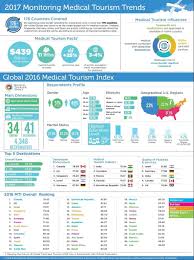Exploring the Benefits of Getting Medical Treatment Abroad
Exploring Medical Treatment Abroad
Seeking medical treatment abroad has become an increasingly popular option for individuals looking for high-quality care at more affordable prices. Whether it’s for specialized procedures, shorter wait times, or access to cutting-edge technology, getting medical treatment abroad can offer a range of benefits.
One of the key advantages of seeking medical treatment abroad is the opportunity to access world-class healthcare facilities and renowned specialists that may not be available in your home country. Many countries have invested heavily in developing state-of-the-art hospitals and clinics that cater to international patients, ensuring top-notch care and advanced treatment options.
Cost-effectiveness is another significant factor driving the trend of medical tourism. In some cases, receiving treatment abroad can be significantly cheaper than undergoing the same procedure in your home country, even when factoring in travel and accommodation expenses. This cost savings can make treatments that were previously out of reach more accessible to a wider range of individuals.
Additionally, getting medical treatment abroad can often mean shorter wait times for procedures compared to healthcare systems with long waiting lists. This can be crucial for individuals seeking urgent or time-sensitive treatments, allowing them to receive care in a timelier manner and potentially improving their outcomes.
Before embarking on a journey for medical treatment abroad, it’s essential to do thorough research and planning. Consider factors such as the reputation of the healthcare facility, qualifications of the medical professionals, success rates for the procedure you require, as well as any potential language or cultural barriers you may encounter.
Furthermore, ensure that you have a clear understanding of all costs involved, including treatment fees, travel expenses, accommodations, and post-operative care. It’s advisable to work with reputable medical tourism agencies or facilitators who can assist you in making informed decisions and coordinating all aspects of your trip.
In conclusion, exploring medical treatment abroad can offer a viable solution for individuals seeking high-quality care at affordable prices with shorter wait times. By conducting thorough research and planning ahead, you can embark on a journey towards improved health and well-being through access to global healthcare options.
6 Advantages of Seeking Medical Treatment Abroad: Quality, Cost, and More
- Access to world-class healthcare facilities and renowned specialists
- Cost-effectiveness compared to receiving treatment in your home country
- Shorter wait times for procedures
- Opportunity to access cutting-edge technology and advanced treatment options
- Ability to combine medical treatment with travel or vacation
- Privacy and confidentiality in a new healthcare environment
Challenges of Seeking Medical Treatment Abroad: Communication, Quality, Recovery, and Follow-Up Concerns
- Language barriers may pose challenges in effective communication with healthcare providers.
- Different healthcare standards and regulations in foreign countries could lead to varying quality of care.
- Travel-related stress and fatigue can impact recovery post-treatment.
- Limited access to follow-up care or complications management upon returning home.
Access to world-class healthcare facilities and renowned specialists
One significant advantage of seeking medical treatment abroad is the access to world-class healthcare facilities and renowned specialists that may not be available in one’s home country. Many countries have invested heavily in developing state-of-the-art hospitals and clinics that cater to international patients, offering cutting-edge technology, advanced treatment options, and expertise from globally recognized medical professionals. This opportunity allows individuals to receive top-notch care and specialized treatments that can potentially lead to better health outcomes and a higher quality of life.
Cost-effectiveness compared to receiving treatment in your home country
One significant advantage of getting medical treatment abroad is the cost-effectiveness it offers compared to receiving treatment in your home country. Many individuals find that undergoing medical procedures overseas can be substantially more affordable, even when factoring in travel and accommodation expenses. This cost savings can make treatments that may have been financially out of reach in their home country suddenly become accessible, providing individuals with the opportunity to receive high-quality care at a fraction of the cost.
Shorter wait times for procedures
One significant advantage of seeking medical treatment abroad is the opportunity for shorter wait times for procedures. In many countries, healthcare systems may have long waiting lists for certain treatments, leading to delays in receiving essential care. By opting to undergo medical procedures abroad, individuals can often access timely treatment and avoid prolonged waiting periods, allowing them to address their health needs more efficiently and effectively.
Opportunity to access cutting-edge technology and advanced treatment options
One significant advantage of seeking medical treatment abroad is the opportunity to access cutting-edge technology and advanced treatment options that may not be available in your home country. Many countries have made substantial investments in healthcare infrastructure, equipping their hospitals and clinics with state-of-the-art equipment and offering innovative procedures that can provide patients with the latest advancements in medical care. This access to advanced technology can lead to more effective treatments, improved outcomes, and a higher quality of care for individuals seeking specialized or complex medical interventions.
Ability to combine medical treatment with travel or vacation
One significant advantage of getting medical treatment abroad is the ability to combine necessary healthcare with travel or vacation experiences. This unique opportunity allows individuals to not only address their medical needs but also explore a new destination, immerse themselves in different cultures, and enjoy a refreshing change of scenery. By integrating medical care with travel or vacation plans, patients can turn their healing journey into a positive and enriching experience that promotes both physical well-being and mental rejuvenation.
Privacy and confidentiality in a new healthcare environment
One significant advantage of seeking medical treatment abroad is the enhanced privacy and confidentiality that a new healthcare environment can offer. Patients may feel more at ease discussing personal health information and undergoing sensitive procedures in a setting where they are not familiar with local residents or healthcare providers. This sense of anonymity can provide a level of comfort and reassurance, allowing individuals to focus on their treatment without concerns about privacy breaches or social stigmas that may exist in their home country.
Language barriers may pose challenges in effective communication with healthcare providers.
Language barriers can present a significant challenge when seeking medical treatment abroad, as effective communication with healthcare providers is crucial for ensuring proper diagnosis, treatment, and follow-up care. Misunderstandings due to language differences can lead to errors in medical history documentation, medication instructions, or post-operative care guidelines. Patients may feel anxious or confused when they cannot fully express their symptoms or concerns, potentially impacting the quality of care they receive. Overcoming language barriers through the use of interpreters or multilingual healthcare staff is essential to ensure clear and accurate communication between patients and providers in a foreign medical setting.
Different healthcare standards and regulations in foreign countries could lead to varying quality of care.
One significant con of getting medical treatment abroad is the potential variance in healthcare standards and regulations across different countries, which can result in a varying quality of care. While some countries may have stringent regulations and high standards for healthcare facilities and practitioners, others may lack robust oversight mechanisms, leading to potential risks for patients. Differences in medical practices, safety protocols, and post-operative care standards between your home country and the destination country could impact the overall quality and safety of the treatment received abroad. It is crucial for individuals considering medical tourism to thoroughly research and assess the healthcare standards in the destination country to ensure that they receive optimal care that meets their expectations and requirements.
Travel-related stress and fatigue can impact recovery post-treatment.
Travel-related stress and fatigue can pose a significant con to getting medical treatment abroad, as it may adversely impact the recovery process post-treatment. The physical and emotional strain of long-distance travel, adjusting to a new environment, and dealing with potential language barriers can add an extra layer of complexity to an already challenging medical journey. Jet lag, discomfort from extended periods of sitting during travel, and the overall disruption to one’s routine can hinder the body’s ability to heal effectively after a medical procedure. Additionally, managing post-treatment care while navigating unfamiliar surroundings can further exacerbate stress levels, potentially slowing down the recovery progress and requiring additional support and resources to ensure a successful recuperation.
Limited access to follow-up care or complications management upon returning home.
One significant con of getting medical treatment abroad is the limited access to follow-up care or complications management upon returning home. After undergoing a procedure in a foreign country, patients may face challenges in receiving adequate post-operative care and addressing any unforeseen complications once they return to their home country. This lack of continuity in healthcare can lead to difficulties in monitoring recovery progress, managing potential side effects, or seeking timely medical intervention if issues arise, highlighting the importance of thorough planning and coordination when considering medical treatment abroad.



